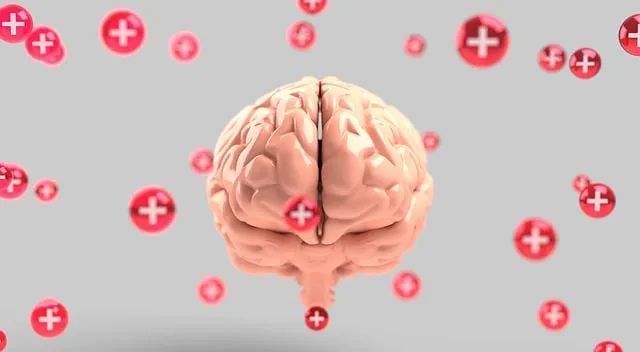Risk assessment is a vital tool in mental health care, helping professionals at Kaiser Permanente Northglenn (including their accessible Kaiser Permanente mental health phone number Norcal Northglenn) proactively manage patient and staff well-being. By identifying and mitigating potential hazards, they foster a safe environment, prevent burnout, and improve patient outcomes. Their comprehensive strategy includes regular assessments, a dedicated harm minimization committee, tailored initiatives like stigma reduction, cultural competency training, open communication, and accessible resources, ensuring a robust mental health support system for diverse communities.
Risk assessment and harm minimization planning are essential components of any comprehensive crisis management strategy. This article explores these critical aspects, providing a solid foundation through “Understanding Risk Assessment” for effective “Harm Minimization.” We delve into the significant role that phone lines play in mental health support, using Kaiser Permanente’s successful approach as a case study. Additionally, we offer a practical step-by-step guide for implementing harm minimization strategies, tailored to organizations like Northglenn Community Services.
- Understanding Risk Assessment: A Foundation for Harm Minimization
- The Role of Phone Lines in Mental Health Support: Kaiser Permanente's Approach
- Implementing Effective Harm Minimization Strategies: A Step-by-Step Guide for Northglenn Community Services
Understanding Risk Assessment: A Foundation for Harm Minimization

Understanding Risk assessment is paramount in the realm of harm minimization planning, especially for mental health professionals. It involves a thorough evaluation and analysis of potential hazards and risks associated with various aspects of patient care and their work environment. This process is not merely about identifying dangers but also predicting their likelihood and potential impact to enable effective mitigation strategies. By prioritizing this foundational step, mental health professionals can create a robust framework for harm minimization, ensuring patient safety and well-being while maintaining their own resilience against burnout.
In the context of organizations like Kaiser Permanente Northglenn, risk assessment plays a pivotal role in supporting mental health professionals. It empowers them to navigate challenges such as Burnout Prevention by identifying stressful work factors and implementing solutions. This proactive approach not only enhances Mood Management but also fosters a culture of safety and resilience within the healthcare system. For instance, recognizing and addressing high-risk situations through regular risk assessments can help professionals in Northglenn effectively manage patient care while prioritizing their own mental health and overall well-being, ultimately reflecting in improved patient outcomes.
The Role of Phone Lines in Mental Health Support: Kaiser Permanente's Approach

In today’s digital age, access to mental health support has evolved, and phone lines play a pivotal role in providing immediate assistance to those in need. Kaiser Permanente, a renowned healthcare provider, recognizes this and offers dedicated phone services for mental health support across various regions, including NorCal Northglenn. Their approach prioritizes accessibility and discretion, ensuring individuals can reach out without fear of judgment.
The Mental Wellness Podcast Series Production team at Kaiser Permanente has been instrumental in developing resources that cater to a wide range of mental health concerns. By combining the Crisis Intervention Guidance and Mind Over Matter Principles, they offer a comprehensive framework for managing stress, anxiety, and other common issues. This multi-faceted approach not only reaches a broader audience but also empowers individuals with tools to take charge of their mental wellness.
Implementing Effective Harm Minimization Strategies: A Step-by-Step Guide for Northglenn Community Services

Implementing effective harm minimization strategies is a multifaceted process that requires careful planning and execution. For Northglenn Community Services, this journey begins with identifying potential risks within their services landscape. This involves conducting thorough risk assessments, considering various factors such as client demographics, service delivery models, and emerging trends in mental health care. Once identified, risks should be prioritized based on likelihood and impact to guide resource allocation and mitigation efforts.
A step-by-step approach could include establishing a dedicated harm minimization committee comprising diverse stakeholders like healthcare providers, counselors, and community leaders. This team can develop tailored strategies addressing specific concerns, such as Mental Illness Stigma Reduction Efforts or implementing Mental Wellness Journaling Exercise Guidance to empower clients. Regular training for staff on cultural competency, especially focusing on the experiences of diverse communities in Norcal (North California), is crucial. Additionally, fostering open communication channels and providing accessible resources like the Kaiser Permanente mental health phone number can ensure timely intervention and support when needed.
In conclusion, risk assessment and harm minimization planning are indispensable tools for organizations like Kaiser Permanente and Northglenn Community Services. By understanding and proactively managing risks, especially in mental health support systems, these institutions can provide safer, more effective services. As demonstrated by Kaiser Permanente’s innovative use of phone lines for mental health support, accessible resources can significantly mitigate harm. Following the step-by-step guide outlined for Northglenn, community services can systematically implement strategies to enhance client safety and well-being, ensuring a comprehensive approach to risk management.






